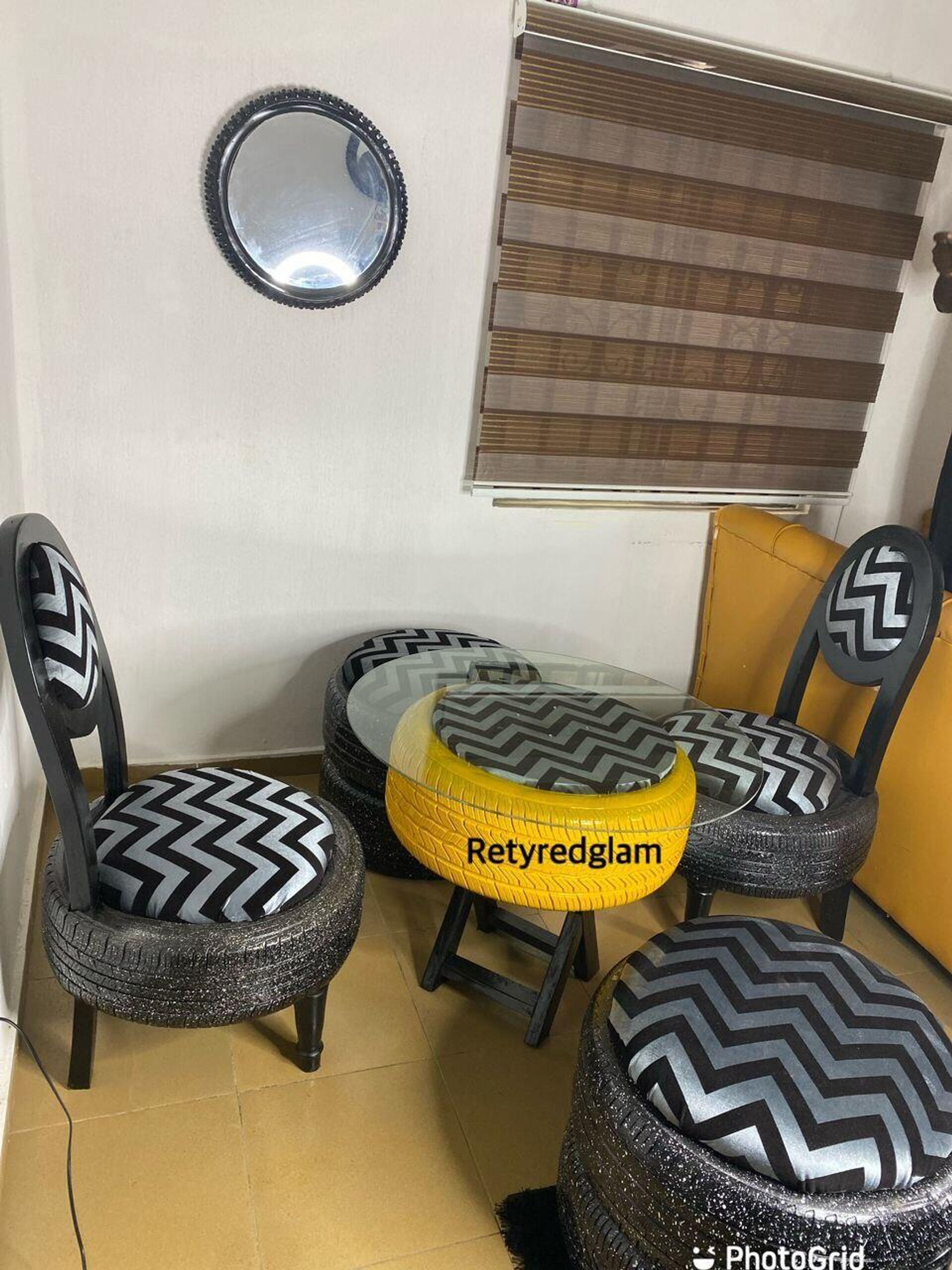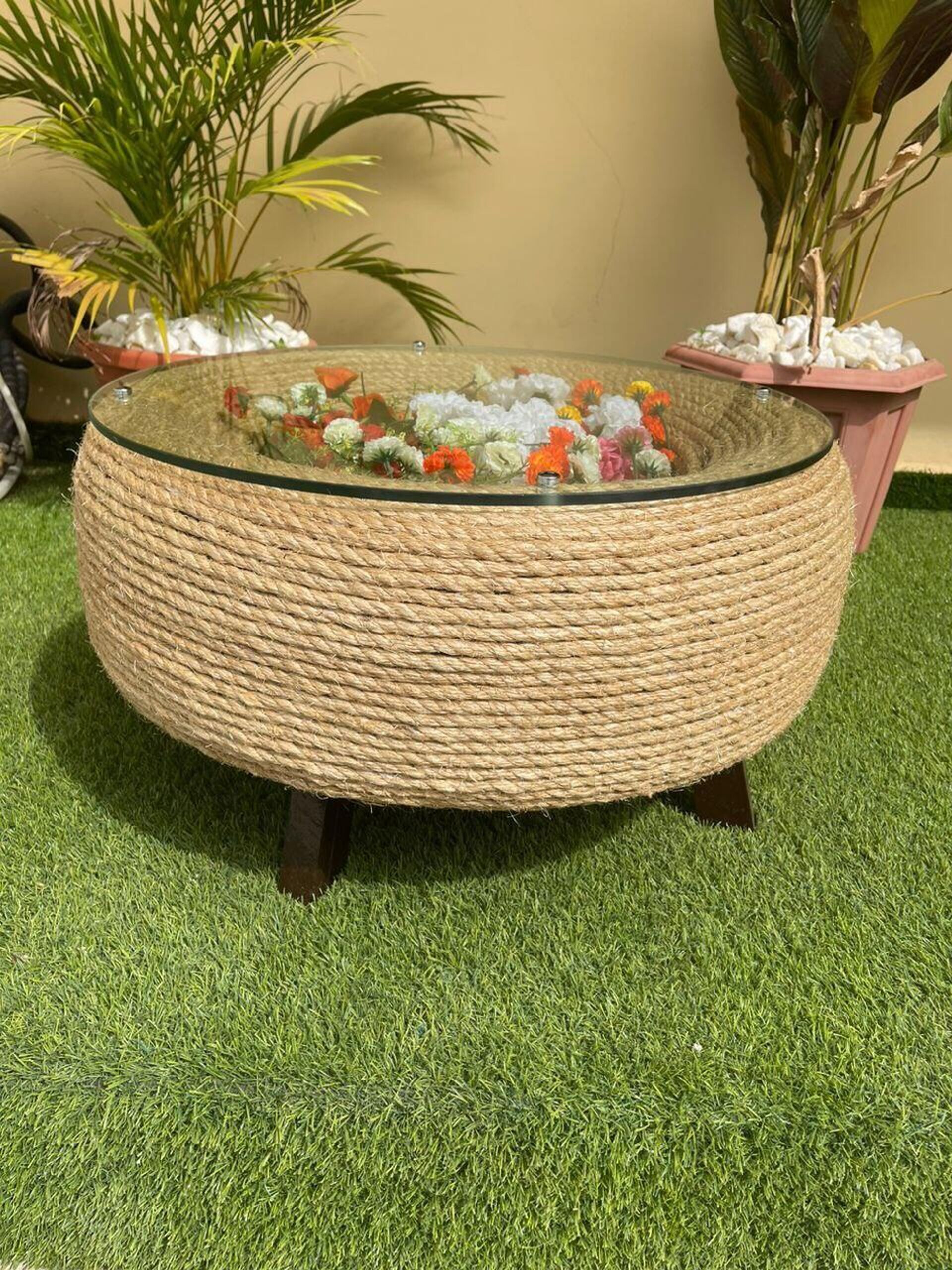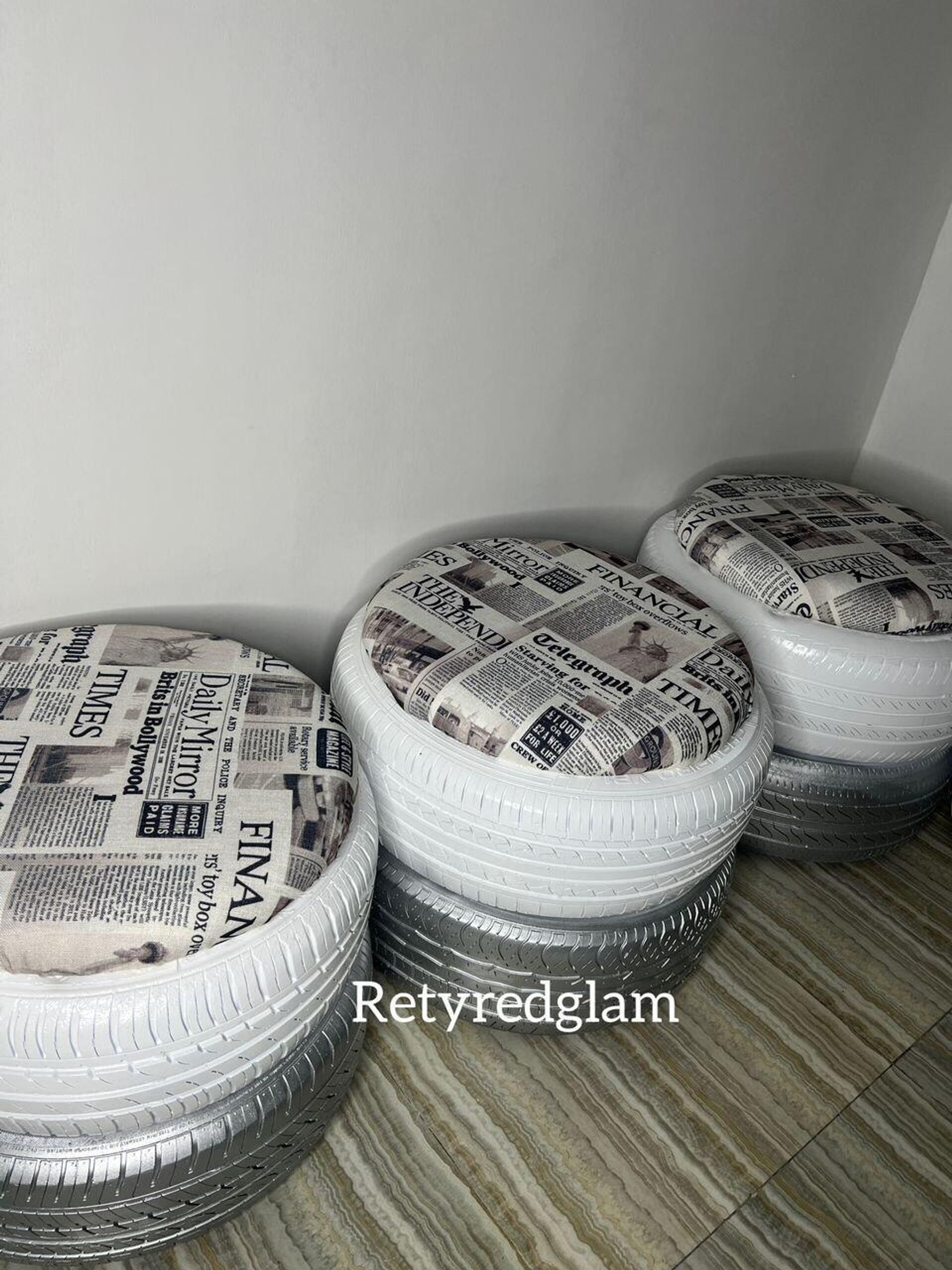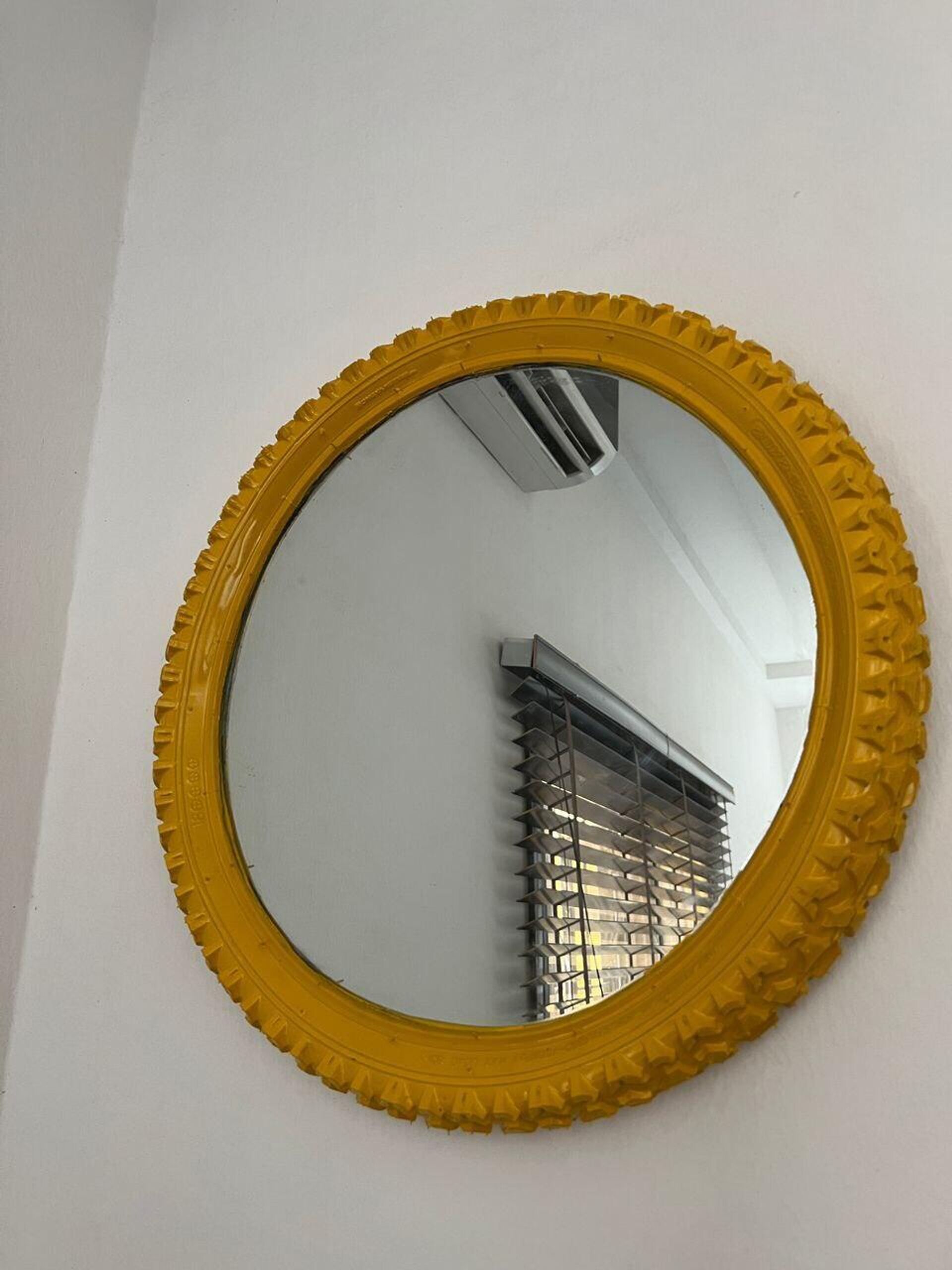https://en.sputniknews.africa/20231222/transforming-waste-into-beauty-the-inspiring-journey-of-nigerias-favour-oluma-1064245832.html
Transforming Waste Into Beauty: The Inspiring Journey of Nigeria's Favour Oluma
Transforming Waste Into Beauty: The Inspiring Journey of Nigeria's Favour Oluma
Sputnik Africa
In response to environmental challenges, African communities are actively exploring ways to manage waste and turn it to their advantage, contributing to both... 22.12.2023, Sputnik Africa
2023-12-22T16:09+0100
2023-12-22T16:09+0100
2023-12-22T16:15+0100
nigeria
west africa
features
waste
business
economy
industry
environment
https://cdn1.img.sputniknews.africa/img/07e7/0c/16/1064247528_0:508:960:1048_1920x0_80_0_0_a224486e99b6fcc352a68d251b3aa531.jpg
During the COVID-19 lockdown, Favour Oluma noticed piles of unused tires in her compound – and an idea struck her. Now, her business revolves around upcycling discarded tires into stunning pieces of furniture. What began as a concept turned into viral sensation on social media with her first creation, a table crafted from a tire. The overwhelming response laid the foundation for Retyreglam, a company that recycles tires into pieces of furniture.Favour's commitment goes beyond crafting furniture; it is a mission to change perceptions about waste. She advocates against burning tires, a common practice in Nigeria that releases harmful toxins. Instead, the entrepreneur sees the potential in waste materials and transforms them into objects of beauty. The crafting process involves sourcing tires from vulcanizers, washing the materials, and turning them into furniture, Favour explained. Her best-selling item, the center table, takes approximately three hours to create, the CEO added.In addition to tables, she also makes stools, which take 2-3 days to make. According to Favour, the stools are inspired by African culture, especially Nigerian one, where wooden stools are common.Looking ahead, Favour envisioned expanding her creative horizons by incorporating other materials like bottles and cans into her artwork. She reasoned that "so many bottles lying here in Nigeria on the floor and it's really no [not] good when we burn these things."Favour's story began in Benue State, Nigeria, in a family of modest means. She lost her mother at the age of 12 and her father shouldered the responsibility of raising six children.Although, her father emphasized the importance of education, fate steered Favour towards a different path after his demise. Faced with the responsibility of providing for herself and her siblings, the future furniture master turned to her passion and founded Retyreglam.Today, the brainchild of an entrepreneur stands not just as a business, but as a testament to the possibility that beauty can come from unexpected sources.
nigeria
west africa
Sputnik Africa
feedback@sputniknews.com
+74956456601
MIA „Rossiya Segodnya“
2023
Maxim Grishenkin
https://cdn1.img.sputniknews.africa/img/07e7/0a/17/1063018107_0:0:1104:1103_100x100_80_0_0_03090c85a11f5d2e8a19cf1d989443c9.jpg
Maxim Grishenkin
https://cdn1.img.sputniknews.africa/img/07e7/0a/17/1063018107_0:0:1104:1103_100x100_80_0_0_03090c85a11f5d2e8a19cf1d989443c9.jpg
News
en_EN
Sputnik Africa
feedback@sputniknews.com
+74956456601
MIA „Rossiya Segodnya“
Sputnik Africa
feedback@sputniknews.com
+74956456601
MIA „Rossiya Segodnya“
Maxim Grishenkin
https://cdn1.img.sputniknews.africa/img/07e7/0a/17/1063018107_0:0:1104:1103_100x100_80_0_0_03090c85a11f5d2e8a19cf1d989443c9.jpg
nigeria, west africa, waste, business, economy, industry, environment
nigeria, west africa, waste, business, economy, industry, environment
Transforming Waste Into Beauty: The Inspiring Journey of Nigeria's Favour Oluma
16:09 22.12.2023 (Updated: 16:15 22.12.2023) In response to environmental challenges, African communities are actively exploring ways to manage waste and turn it to their advantage, contributing to both their well-being and environmental sustainability. A 23-year-old entrepreneur from Nigeria turns waste into inspiration and works of beauty.
During the COVID-19 lockdown, Favour Oluma noticed piles of unused tires in her compound – and an idea struck her. Now, her business revolves around upcycling discarded tires into stunning pieces of furniture.
What began as a concept turned into viral sensation on social media with her first creation, a table crafted from a tire. The overwhelming response laid the foundation for Retyreglam, a company that recycles tires into pieces of furniture.
"The very time I did my first work, it was posted on social media, it went viral. I got a lot of orders from that particular one that I posted, so that was when I just gave birth to the business. So I was like: 'Okay, I need to start it. Since people like it I am going to start doing this'," Favour told Sputnik Africa.
Favour's commitment goes beyond crafting furniture; it is a mission to change
perceptions about waste. She advocates against burning tires, a common practice in Nigeria that releases harmful toxins. Instead, the entrepreneur sees the potential in waste materials and transforms them into objects of beauty.
"I really don't like it when I'm passing and see tires being burned, because they are something that you can actually use to make something very beautiful out of. So that was like one of the main reasons why I use tires, because I hate when tires burn, which is not good for our health," she noted.
The crafting process involves sourcing tires from vulcanizers, washing the materials, and turning them into furniture, Favour explained. Her best-selling item, the center table, takes approximately three hours to create, the CEO added.
In addition to tables, she also makes stools, which take 2-3 days to make. According to Favour, the stools
are inspired by African culture, especially Nigerian one, where wooden stools are common.
"We make use of stools very well here in Nigeria [...] So, I just told myself: 'Since Nigerians like this very well. Why don't they make a different version, like using tires?' I just told myself that Africans love this particular stool, so let me make something beautiful out of it. Here in Nigeria, they really love my work," the entrepreneur remarked.
Looking ahead, Favour envisioned expanding her creative horizons by incorporating other materials like bottles and cans into her artwork. She reasoned that "so many bottles lying here in Nigeria on the floor and it's really no [not] good when we burn these things."
Favour's story began in Benue State, Nigeria, in a family of modest means. She lost her mother at the age of 12 and her father shouldered the responsibility of raising six children.
Although, her father emphasized the importance of
education, fate steered Favour towards a different path after his demise. Faced with the responsibility of
providing for herself and her siblings, the future furniture master turned to her passion and founded Retyreglam.
"So when I lost him, immediately after his burial, in fact, the very day I came back, I went to the market to get some tints to start my work because my dad was the one that usually, pays my school fees, I don't have a mom anymore and now that my dad is not alive, I was just wondering who was going to pay my school fees because there are many of my siblings, they were still in school, my older ones were still in school, so I don't know who is going to start taking care of me," Favour said.
Today, the brainchild of an entrepreneur stands not just as a business, but as a testament to the possibility that beauty can come from unexpected sources.
"The message it [Retyreglam] is trying to convey is: 'You can use waste products to create beautiful things.' Like for my mirror, message that one is conveying is: 'You can see through waste'," she concluded.






